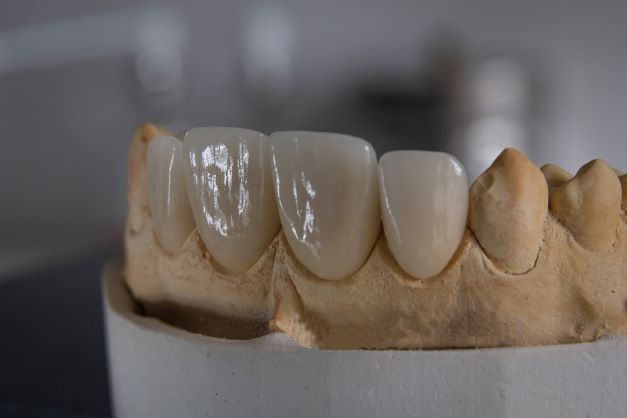21 Dec Can Dental Crowns Be Replaced? Old ones ? Free Guide Here!
Dental crowns are essential for protecting and restoring damaged teeth. Over time, crowns can wear down or even break. Many patients wonder: Can dental crowns be replaced? . The short answer is yes, you should replace dental crowns when necessary. In this article, we will explore when and why crowns need replacement, and what to expect during the process.
Why Can Dental Crowns Be Replaced?
Dental crowns stay strong, but they don’t last forever. Several factors can lead to their replacement:
- Wear and tear: Over the years, crowns can wear down from chewing and grinding. This natural wear weakens the crown.
- Cracks or damage: If a crown chips or breaks, it loses its strength and may no longer protect your tooth properly.
- Decay under the crown: Sometimes, decay can form under the crown. This can happen if the dentist doesn’t create a perfect fit or if bacteria trap themselves underneath.
- Loose crown: If a crown becomes loose or falls off, the dentist should replace it to protect the underlying tooth.
Each of these reasons can cause discomfort or even lead to infections. So, can dental crowns be replaced if you have these issues? Yes, the dentist should replace them to prevent further damage to your tooth.
Signs That Your Dental Crown Needs Replacing ( Can Dental Crowns Be Replaced?)
You may wonder, “How do I know if I need to replace my dental crown?” Look for these signs:
- Pain or discomfort: If you feel pain in the crowned tooth, it might mean the crown has shifted or damaged the tooth underneath.
- Visible damage: If you notice a chipped or cracked crown, it’s a clear sign you need to replace it. Watch for these signs:
- Looseness: If your crown feels loose or wobbly, it could fall off. A loose crown can lead to decay or infection.
- Gum irritation: If the gums around the crown are red or swollen, this could be a sign of decay or an ill-fitting crown.
So, can dental crowns be replaced when these symptoms occur? Absolutely! Replacing a damaged or loose crown can prevent further problems.
How Can Dental Crowns Be Replaced?
When it comes to replacing an old crown, the process is very similar to when you first got the crown. Here’s what you can expect during a crown replacement procedure:
- Examination: Your dentist will first check the old crown and the tooth underneath to see if it needs repair.
- Removal of the old crown: The dentist carefully removes the old crown. If there is any decay or damage underneath, your dentist will treat it.
- Tooth preparation: The tooth may need reshaping to fit the new crown securely. Your dentist will clean the area and make it ready for the new crown.
- Taking impressions: The dentist takes a mold or digital scan of your tooth to create a perfectly fitting new crown.
- Temporary crown: While the dentist makes your new crown, they may give you a temporary crown to protect your tooth.
- Fitting the new crown: Once the permanent crown is ready, your dentist will cement it in place. They will make sure it fits comfortably and looks natural.
This process is typically painless, but it may take two visits. If you’re asking, “Can I replace dental crowns more than once?” the answer is yes, as needed.
Can Dental Crowns Be Replaced Multiple Times?
Yes, dental crowns can be replaced more than once. With proper care, a dental crown can last between 10 to 15 years. However, this varies depending on your oral habits and how well you take care of your crown. If you damage a crown, you should replace it to protect your teeth from further harm.
In some cases for example your dentist may recommend alternative treatments if the tooth has too much damage. But in most situations, replacing the crown is the best solution to restore both function and appearance. So, can you replace dental crowns more than once if necessary? Yes, they can.
How to Care for Your New Dental Crown
Once you have your new crown in place, it’s essential to care for it properly. This will help extend its lifespan and keep your teeth healthy. Follow these simple tips:
- Brush and floss daily: Take care of your crown just like you would your natural teeth. Brush twice a day and floss daily to remove plaque.
- Avoid hard or sticky foods: Biting down on hard foods can chip or damage your crown. Sticky foods can loosen it.
- Wear a nightguard if needed: If you grind your teeth at night, wearing a nightguard can protect your crown.
- Visit your dentist regularly: Regular dental checkups will help spot any problems early and keep your crown in good condition.
By following these steps, you can help your crown last longer and avoid costly replacements. If you’re ever unsure, ask your dentist, “Should I replace my dental crowns?” They will guide you on when to replace them.
Why Choose Contident Dental Clinic for Your Crown Replacement? Can we replace dental crowns at our clinic?
If you need a dental crown replacement, our team at Contident Dental Clinic in Budapest can help. We offer high-quality dental care, including crown replacements, at competitive prices. Our experienced dentists use the latest technology to ensure the best results.
For patients traveling from the UK, Western Europe, the US, or Australia, we provide a free consultation to assess your needs and offer personalized treatment plans. Whether you need a single crown replaced or are considering other cosmetic treatments, we are here to help.
At Contident, we pride ourselves on excellent service, and we invite you to explore our services for all your dental treatment needs. You can learn more about our offerings on our website and discover why patients choose Budapest for their dental care.
Conclusion
So, should you replace dental crowns? Yes, you can—and in many cases, you should. If you think you need to replace your dental crown, contact your dentist right away.
For those looking for expert care, visit Contident Dental Clinic in Budapest. We offer free consultations to discuss your options and provide you with the best dental care, from crown replacements to full cosmetic treatments. Don’t wait—take care of your smile today!









 Need help?
Need help?
Sorry, the comment form is closed at this time.